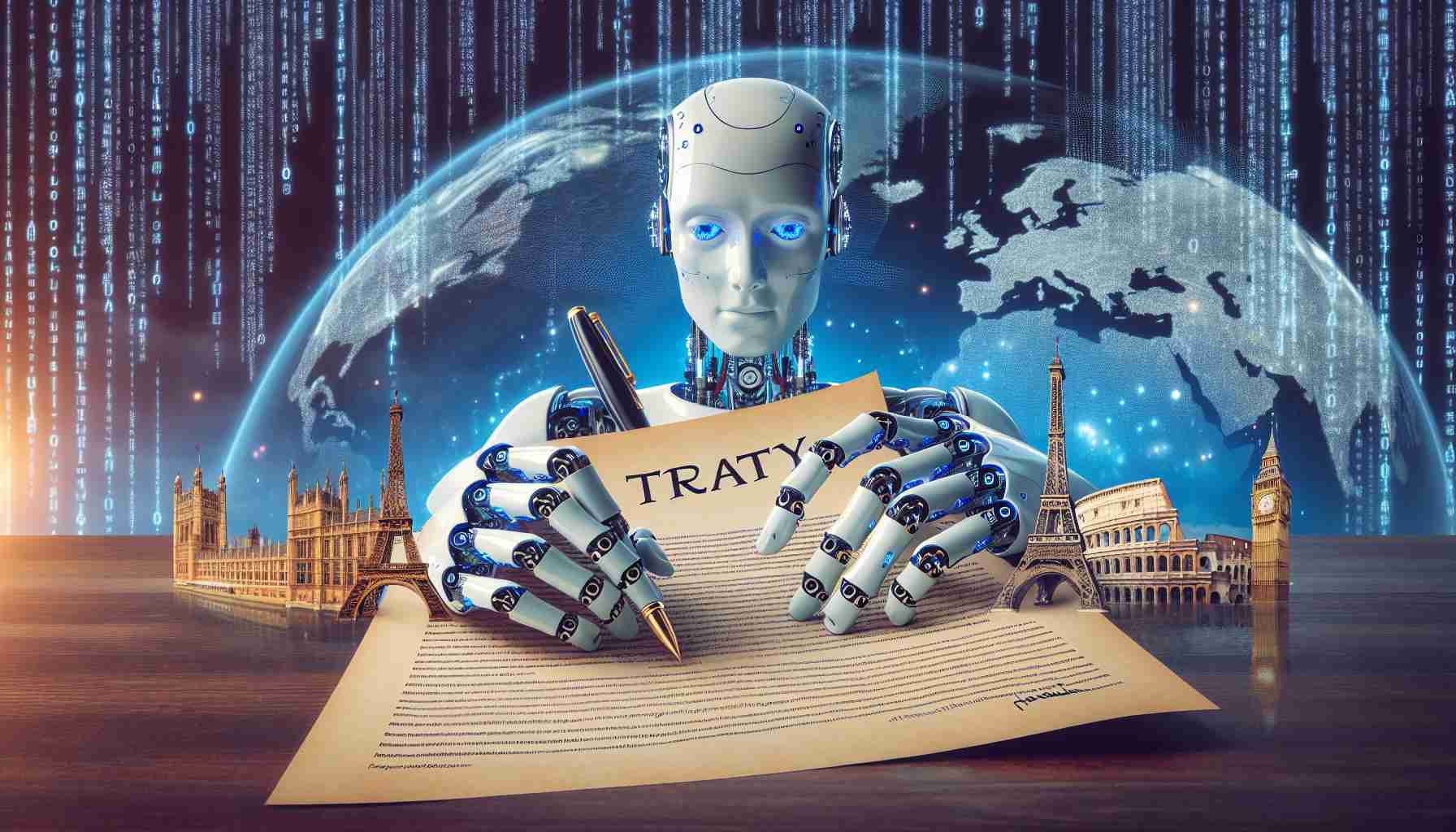Strasbourg Announces Adoption of AI Framework Agreement
In a move to uphold human rights, rule of law, and democracy in the digital age, the Council of Europe has approved a landmark treaty that provides a legal framework governing artificial intelligence systems.
Global First in Comprehensive AI Legislation
The treaty, which is open to participation by countries outside Europe, will manage the full lifecycle of AI systems, promoting responsible innovation while addressing potential risks. This regulation, hailed as the first worldwide comprehensive AI law, was consented to by the Parliamentary Assembly and the Committee of Ministers in December 2023.
AI Systems to Meet Stringent Ethical Standards
The directive mandates that AI systems should be transparent, equitable, and environmentally sustainable. Drawing on a proposal from the European Commission, this legislation will classify AI systems into risk groups, with higher standards for those posing greater threats, including the prohibition of human behavior manipulation through AI in Europe.
Extensive Collaboration Behind the Legislation
The drafting process involved a cross-national committee on artificial intelligence, including members from the 46 member states of the Council of Europe, the European Union, and several observer countries and entities representing the private sector and civil society.
Vatican Voices AI Concerns and Ethics
Pope Francis, addressing the dangers and opportunities of AI, has emphasized the need for ethical engagement with technology. In particular, he opposes AI applications in decision-making and the military industry. Following his calls for global AI regulations, the Rome Call for AI Ethics emerged in 2020, promoting ethical AI aligned with human dignity and the collective good, distinctly outlining areas of “Ethics,” “Education,” and “Rights.”
Key Questions and Answers:
What is the main purpose of the AI treaty adopted by the Council of Europe?
The treaty aims to uphold human rights, the rule of law, and democracy by creating a comprehensive legal framework that governs the development, deployment, and use of artificial intelligence systems. It seeks to promote responsible innovation and mitigate potential risks associated with AI technologies.
Can non-European countries participate in the treaty?
Yes, the treaty is open to participation by countries outside of Europe, which allows for a broader international collaborative effort in setting AI standards and regulations.
What are some of the ethical standards AI systems are required to meet under this treaty?
AI systems are required to be transparent, equitable, and environmentally sustainable. Furthermore, there will be a classification of AI systems into risk groups, imposing stricter regulations on systems that pose greater threats.
What are some key challenges or controversies associated with AI regulation?
Some of the key challenges include balancing innovation with ethical considerations, ensuring compliance across different jurisdictions, preserving competition, and preventing the misuse of AI in critical areas such as surveillance, decision-making, and military applications. Controversies may arise about the impact on the industry, potential stifling of technological progress, and defining universally accepted ethical standards.
Advantages and Disadvantages:
Advantages:
– Enhances Safety: By classifying AI systems according to risk, greater safeguards can be implemented where needed.
– Promotes Ethical Standards: The treaty emphasizes ethical considerations, seeking to prevent discrimination and violations of human rights.
– Supports Collaboration: A collaborative framework encourages the sharing of best practices between nations and entities.
– Global Impact: By being open to countries outside Europe, the treaty sets a precedent that could influence global AI regulation.
Disadvantages:
– Variability in Enforcement: Implementation may vary by country, leading to inconsistencies in AI governance.
– Technology Stifling: Stricter regulations may slow down innovation by placing burdens on AI developers and companies.
– Economic Impact: Compliance costs could affect the competitiveness of businesses, especially smaller companies with fewer resources.
Related information on the topic can be found on the main websites of relevant organizations and stakeholders such as the Council of Europe and the Vatican:

